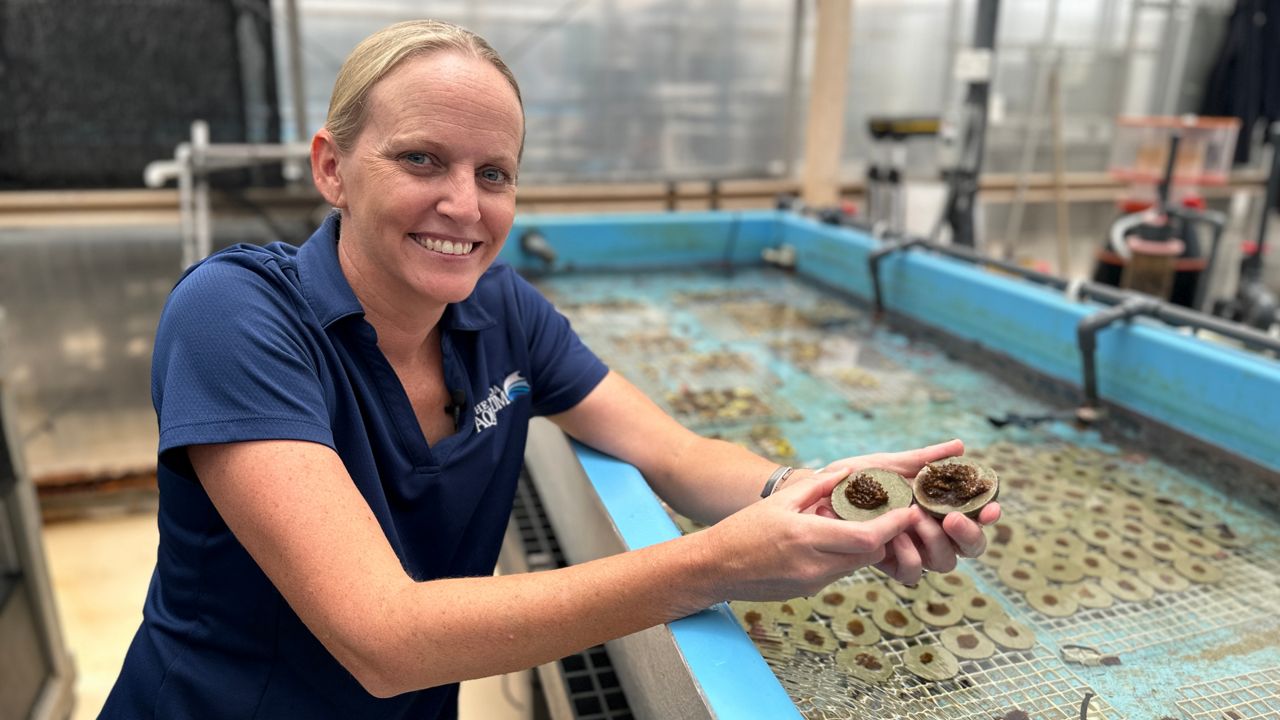July is one one of Florida’s warmest months, but don’t expect much relief at the beaches south of here. NOAA scientists are expressing concern over rising temperatures in the waters off the Florida Keys.
What You Need To Know
- NOAA scientists are expressing concern over rising temperatures in the waters off the Florida Keys
- Florida Aquarium team is working to counter losses in Florida waters by replanting the young coral they grow in their greenhouses
- The aquarium sent its first group of hybrid coral to the University of Miami, which is leading the project; there, the coral is undergoing heat resistance testing
According to NOAA, water temperatures there have reached the 90s this month, setting record highs that have scientists sounding the alarm for our coral reefs.
“When the temperatures get so warm that we’re reaching this alert level for bleaching, what that means is the relationship between coral the animal and the algae that lives inside of it is at risk of breaking down,” said Keri O’Neil, a senior scientist and director of The Florida Aquarium’s Coral Conservation Program.
It’s a stress response that has decimated coral reefs around the globe. But, O’Neil said the team at the aquarium is working to counter those losses in Florida waters by replanting the young coral they grow in their greenhouses. There, coral spawned at the aquarium are able to thrive under climate controlled conditions.
“The way that we keep the water in our tanks cool is actually through a chilled water system. So there is 54 degree water running through this titanium coil that’s submerged in the water,” O’Neil said.

That system keeps water temperatures in the low 80s, mimicking conditions found in the waters of the Florida Keys under normal circumstances. With rising water temperatures due to climate change, O’Neil said breeding more resilient coral has become a major part of the aquarium’s efforts.
“Now that we know how to spawn these corals in the lab, the next step is choosing the right parents,” O’Neil said. “How do we make corals that are going to survive?”
This is where breeding comes into play. O’Neil said her team is currently working on hybrid corals and showed us a cross between a staghorn coral and an elkhorn coral.
“It still has that flat branch shape but has much skinnier branches like the stag horn coral,” O’Neil said.
The aquarium sent its first group of hybrid coral to the University of Miami, which is leading the project. There, the coral is undergoing heat resistance testing.
“I’m very anxious for the results,” O’Neil said. “I hope that all this hard work pays off and that we do have some genuinely heat resistant corals”
If all goes according to plan, O’Neil said those too will go out to sea, as part of an artificial reef structure funded by DARPA, an arm of the United States Department of Defense that makes investments in what it calls “breakthrough technologies for national security.”



